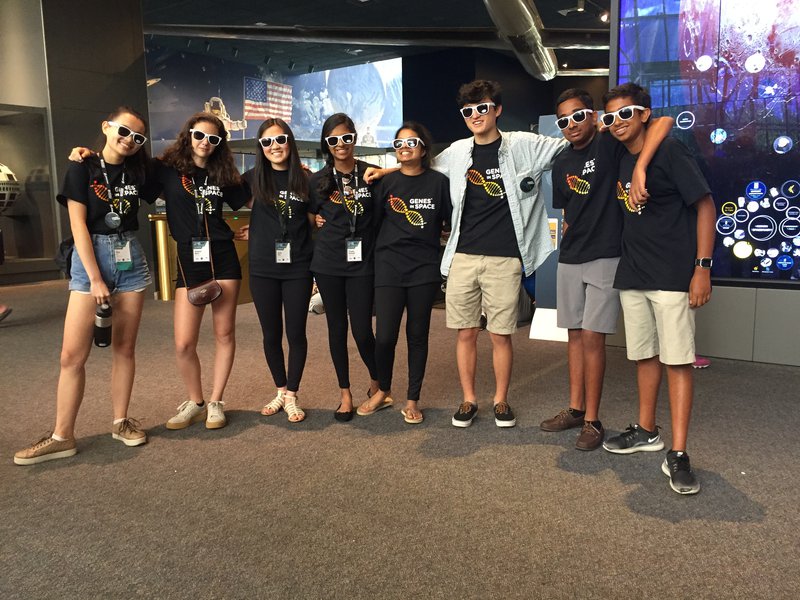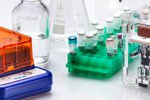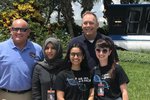GiS Spotlight: Finalists Priyanka Pulvender and Divya Aggarwal
Divya and Priyanka will be juniors at Troy High School in Michigan. Last spring they were selected as Genes in Space Finalists meaning their proposal was one of the top 5 submissions out of the 375 received in the 2017 contest! They worked with mentor Kutay Deniz Atabay and then traveled with their families to the International Space Station Research and Development Conference in Washington, D.C. to present their proposal to a panel of judges. Here these two talented teens share their memories of this experience and advice for future Genes in Space participants.
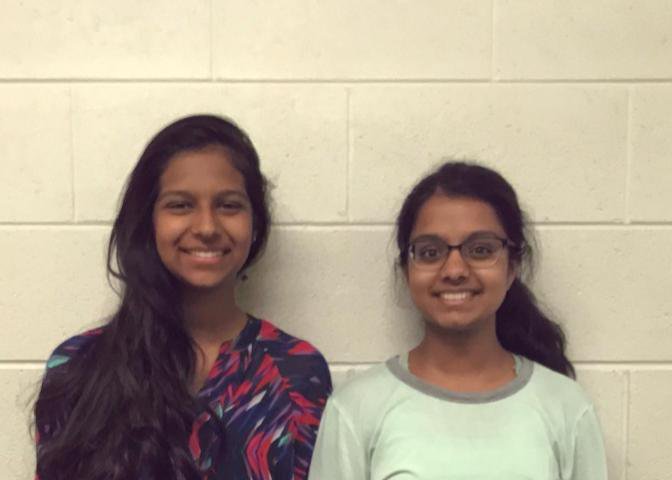
What inspired you to apply to Genes in Space?
The idea of Genes in Space was instantly something we both were interested in because it combined two of our greatest interests: biology and space. We also loved the idea of being a high schooler and contributing something, no matter how small, to the field of space biology.
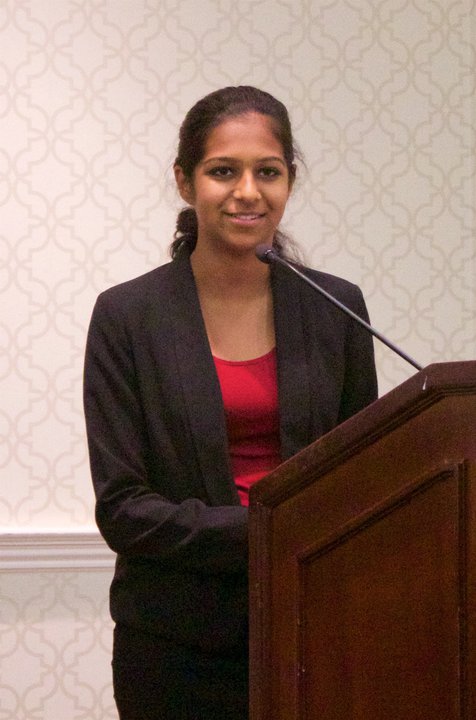 Priyanka presenting at the ISS R&D Conference.
Priyanka presenting at the ISS R&D Conference.
How did you first become interested in science and space?
Priyanka: The first time I remember becoming interested in science was in 3rd grade when my teacher showed us a video about the heart. I remember thinking that the organ was so fascinating, which led me to reading a multitude of books about the heart and diseases. As time went on, I was introduced to the world of biology: it was truly amazing. I learnt so many different things: cell biology, virology, homeostasis, etc. Each of which traced back to my genuine interest, curiosity, and love for the subject.
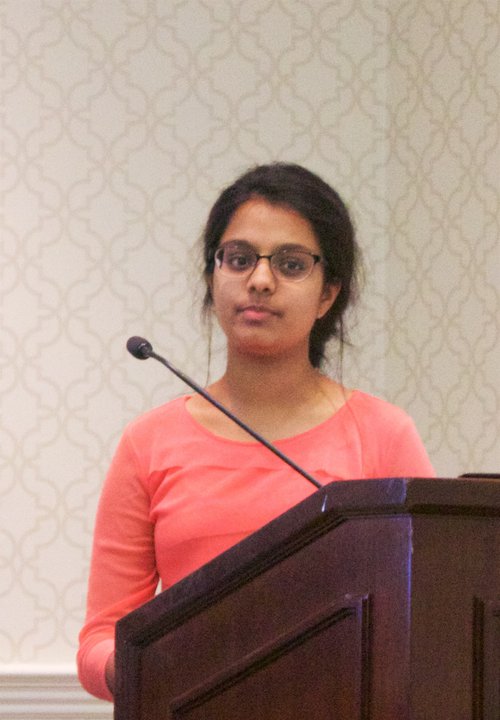 Divya presenting at the ISS R&D Conference.
Divya presenting at the ISS R&D Conference.
Divya: Both of my parents are doctors, so I’ve been around biology for as long as I can remember. The human body has always been something that I’ve been fascinated in, especially since middle school, when I took Anatomy and Physiology and truly fell in love with it. My interest in space has been present for my whole life. I remember reading my Stars and Planets book again and again, mesmerized by it. Throughout middle school and high school, I fueled that interest by taking courses that enabled me to further my knowledge of the universe.
Tell us a little bit about your topic. How and why did you choose your topic?
We chose our topic to revolve around the heart because both of us were always super intuitive about the organ. Since the heart is the center of the body, and heart disease is the number one cause for death, we decided to research how the heart changes in space. Our solution was based off of the idea that the heart becomes 10% more spherical in space, leading to heart problems and heart disease at an earlier age. To combat this problem, we decided to send organoids, or 3D hearts in space to diagnose and treat this problem.
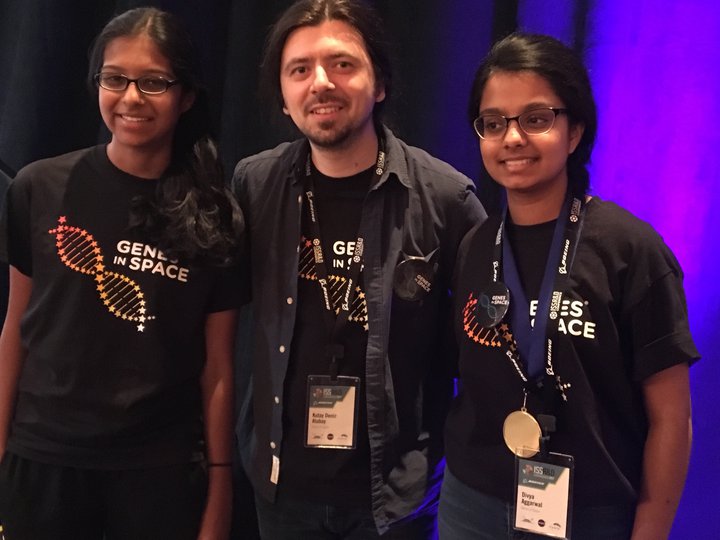
What was it like working with your mentor?
Working with our mentor, Deniz, was one of our favorite parts of this whole experience. We were able to bounce ideas back and forth with him, and learn so many new thinks pertaining to our topic. On top of that, Deniz was always encouraging and supporting. He pushed us to do our best, and treated us with respect and kindness. We cannot thank him enough for everything he has given us.
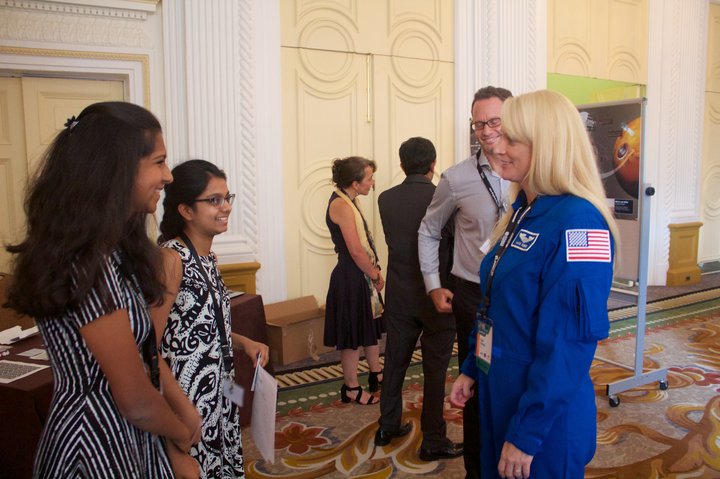
What was it like to attend the ISS R&D conference in Washington, D.C.? What was your favorite part?
Attending the ISS R&D Conference was surreal. It was amazing to see so many intelligent people come together and collaborate their ideas. The conference opened my eyes to a whole world of space that I had never seen before. My favorite part was meeting astronauts like Kate Rubins and seeing the collaboration between people of many different professions.
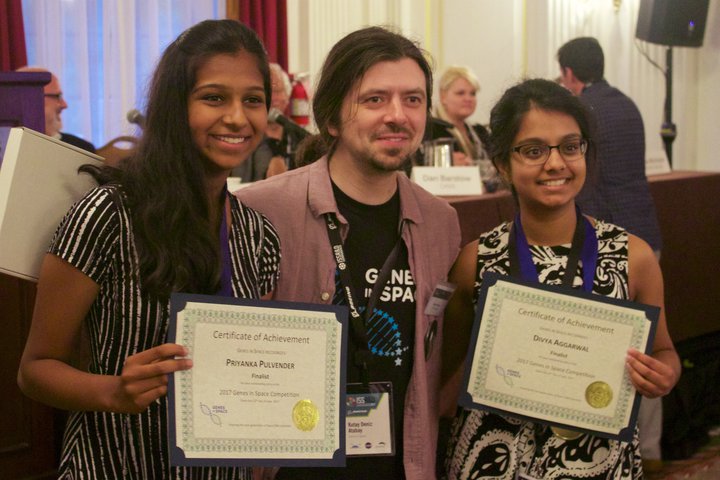
What did you gain by participating in Genes in Space?
By participating in Genes in Space, we learnt SO much! From talking to our mentor to end of the competition, we continuously learnt new things. In addition to learning, we were able to make new friends. We also gained exposure to a broader and more applicable view of science. We take away better skills for the future for similar opportunities.
Do you have any advice for future Genes in Space contestants?
Plan and produce! If you have a solution that would help save lives, understand more about life, explore outer space, you should push yourself to apply and make the best proposal you can. Genes in Space is highly advantageous and we encourage everyone to apply with their own project!
